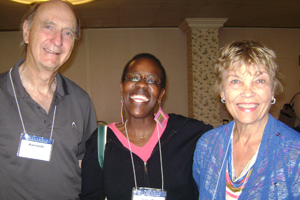Latest News Archive
Please select Category, Year, and then Month to display items
11 January 2021
|
Story André Damons
|
Photo Supplied
 Dr Ralph Clark
Dr Ralph Clark
The Afromontane Research Unit (ARU), the flagship research group of the University of the Free State (UFS) Qwaqwa Campus, has recently been granted R8,4 million to establish a Risk and Vulnerability Science Centre programme.
The Risk and Vulnerability Science Centre (RVSC) programme was established by the Department of Science and Innovation (DSI) as part of the Global Change Research Plan for South Africa and is funded by the DSI through the National Research Foundation (NRF). The RVSC will focus on the need to generate and disseminate knowledge about risk and vulnerability on global change challenges faced by local policy makers/ governance structures and communities in South Africa.
Invited to participate
Dr Ralph Clark, Director of the ARU, says the UFS, together with the University of Zululand and the Sol Plaatje University, has been invited to participate in Phase 2 of the RVSC programme. Dr Clark was approached by the DSI (on referral from the South African Environmental Observation Network – SAEON) in February 2020 regarding the potential for establishing a RVSC at the UFS Qwaqwa campus.
Subsequent interactions were held between the UFS and DSI, and in March 2020, the UFS formally accepted the DSI invitation. It has since been agreed that the RVSC: UFS will be hosted as a RVSC under the ARU umbrella, with dedicated personnel embedded at the UFS in this regard (internal processes and reporting) but reporting directly to the NRF regarding the RVSC.
Interest and support welcomed
Dr Clark welcomed this interest and support from the DSI-NRF, saying that the funds will further assist the UFS in growing its excellent and growing research portfolio and building more research capacity on this traditionally undergraduate-focused campus. “The RVSC will contribute to much-needed solutions in an area marked by major sustainability challenges and will assist in moving Phuthaditjhaba away from its negative apartheid history towards becoming a sustainable African mountain city,” says Dr Clark.
The practice of mourning loss
2014-06-11

Prof Kenneth Gergen, Dr Jennifer Githaiga and Prof Mary Gergen
Photo: Supplied |
Among international delegates from over 60 nations and more than 1 300 participants, Dr Jennifer Githaiga presented her paper on the practice of mourning – the African way.
Her paper questioned the language used in psychology to ‘pathologise’ African people’s mourning practices. Drawing from her doctoral research, she explained the role of maintaining close bonds with family members after they pass away. Rather than severing these bonds, Dr Githaiga argued that continued attachment beyond death plays a significant role in healing the trauma of loss.
Dr Githaiga’s entitled her paper ‘The “pathology” of post-bereavement bonds: cultural positioning in qualitative inquiry.’ She presented this at the Tenth International Congress of Qualitative Inquiry (ICQI). A conference that has become one of the most important events on the calendar of qualitative researchers across the globe. The event was hosted at the University of Illinois in Urbana-Champaign from 21 - 24 May 2014. The theme of the conference this year was ‘Qualitative Inquiry and the Politics of Research’.
Dr Githaiga is currently a postdoctoral fellow at Trauma, Forgiveness and Reconciliation Studies at the UFS. During the congress, she also found herself in the role as ambassador to Kovsies. Not only did she rub shoulders with highly-regarded Profs Kenneth and Mary Gergen, but also spoke with leading scholars in the field of qualitative research interested in our university.